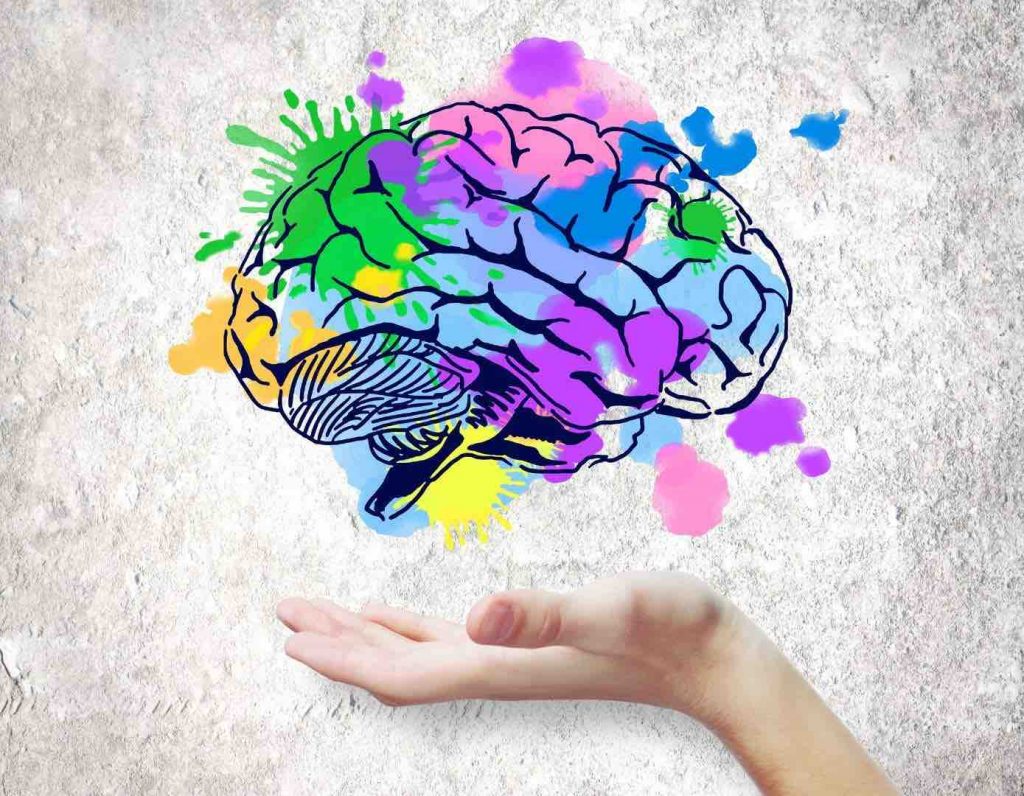It’s true, our mind is a powerful tool, the most important one we have. When utilised properly we can do things beyond our wildest dreams and expectations.
Just look at all the achievements of humankind.
Landing on the moon, building enormous structures, planes for effortless travel, venturing into the deepest depths of the ocean, developing mind blowing technology, creating masterful pieces of art, music, and film.
I could go on, but you get the idea. Our minds are mighty. And we can use them for our own growth, development, wellbeing, and to unveil our full potential. Yet, for many, this simply doesn’t happen.
Why? Because our minds are the ones in control of us.
It’s so easy to get overrun by our thoughts and emotions. Most of the time we operate on autopilot, totally unconscious and unaware of what’s going on in our minds and bodies.
The consequence is that we’re never able to use our mind to our advantage. Rather, we’re just being dragged along by its impulsive, erratic, and uncontrollable reactions to life around us.
Is there an alternative way to be then? How do you use the mind as tool? Well, in this article I’ll try my best to answer that with the knowledge and experience that I have.
The Problem of the Mind

Unlike animals -who depend on instinct alone- humans have the remarkable and unique ability to think.
That means we can remember the past mistakes so we don’t repeat them. We can also imagine the future. Giving us the ability to anticipate and plan for problems that may occur tomorrow, next week, month, or year.
Using thinking to do either of the above has tremendous benefits, it’s why we have accomplished so much. Imagine if we couldn’t do either? We’d just constantly repeat the same mistakes and never be able to plan efficiently.
The problem is that when we let our pesky, hyperactive minds run wild, things get out of control.
We start to dwell and ruminate on all the things we did wrong, didn’t do, achieve, and pursue. Consequently, we feel regret, and can fall into depression.
We can also get obsessed by the future, endlessly planning, or predicting all the things that will go wrong tomorrow. Can you guess what that causes? Anxiety.
Yes, left to its own devices, the mind can cause havoc, tell us stories, lies, make up fantasies, we get stuck in destructive thought loops, act on impulse, and lose all sense, logic and rational.
A little scary, right?
Don’t panic though. Our brains are flexible and adaptable. This is called neuroplasticity. Which means they have the ability to change for the better.
‘BUT HOW CHIRS? How can I control my maniac mind!?’ I hear you ask. Well, you take back control. And the best way to do that is to…
Develop Self-Awareness

Once you become aware of anything in life, you can do something about it.
If you’ve just discovered you have a medical condition, you can take steps to improve or manage it. Just starting to realise you binge eat unconsciously? You can train yourself to stop those urges in their tracks.
The same applies to thoughts and emotions.
We can learn to simply just observe the mind. Rather than letting it dictate how we respond to situations reactively. This applies to what arises within the body as well.
Instead of acting impulsively acting on anger, being consumed by sadness, or overwhelmed with frustration and anxiety. We can pause, breathe, and explore the emotion fully within the body.
You’ll see that both thoughts and emotions simply arise and disappear within our awareness.
The problem is that nobody teaches us this!
We have this intricate, complex, and erratic mind, but with no knowledge of how to tame or use it efficiently. It’s like trying to operate a plane or boat with zero experience, help, instruction, or user manual.
You can certainly give it a go, but I doubt you’d get far.
How then? How can we develop self-awareness to live a more fulfilling life?
Implement Mindfulness Practice and Meditation

Mindfulness is about learning to pay attention to the here and now.
We achieve this through meditation and just by simply being present during anything we’re doing throughout the day.
This includes being aware of what is happening internally within our minds and bodies, and externally in the world, such as using our hearing to listen to sounds appearing around us.
The benefits of this practice are:
- It helps us to live and be in the present moment more often, rather than being lost in the past, or predicting the future.
- It empowers us to develop and cultivate self-awareness.
And as that happens, we begin to understand the workings of our mind better. We start to recognise how our minds work, react, and respond, whilst seeing how this impacts our body.
We wake up more to what’s really happening in the present. This empowers us to make a choice. Instead of allowing our minds to lead us astray, we take control back.
We can use it differently. More efficiently, productively, and compassionately. We can use our mind as a tool. You can read more about the practice in my article ‘What is Mindfulness‘.
Screw Motivation, Become Disciplined & Driven

As you develop more awareness about how your mind works, you can start to take positive action. This includes developing discipline to become driven.
The truth is motivation comes and goes. Sometimes we feel motivated, sometimes we don’t. You can’t depend on it, not at all.
You can depend on you acting though. It’s not easy and it takes work, but by developing discipline you can transform your mindset to become driven and focussed.
I’m afraid there is no secret or shortcuts to this. You just have to get moving. But you’ll see how life changing it can be once you begin.
Replace the Critic with Compassion

You might think that being extremely hard on yourself is a good thing. But it can be counter-productive and discourage you from continuing.
Imagine if your best friend, or a family member came to you expressing how distraught they were because they failed an important exam they had been studying hard for.
Would you say ‘well, you’re useless, why did you even bother? It seems like you can’t do anything right, and will probably always fail’? I certainly hope not.
Yet, that’s exactly how many of us treat ourselves. That little voice in our heads berates, criticize, and shames us. And how do you feel afterwards? I’d imagine that most of the time it makes you feel worse.
As we began to recognise this harsh self-talk through mindfulness, we can cultivate a better way of thinking.
We can do this by developing a compassionate self that is supportive, wise, and caring. Then our thinking begins to work in our favour. Like a someone cheering us on with positivity and kindness.
This will work far better than putting ourselves down with negative self-talk. This is coming from an extreme, perfectionist self-critic who used to do this all the time.
Self-Development Take Times
Just remember that self-development is a journey, it takes time, its gradual, and it never stops. We can always learn, improve, become more self-aware, and discover better ways of doing things.
I’m also on that path and what’s this website is dedicated to. With the hopes that my own experiences will inspire and help others.
The mind can feel like it’s impossible to reign in at times, but it is possible. It’s about taking little steps to get there. Mindfulness practice and meditation are great places to start.
Once you develop that self-awareness, you can change your mindset to work it to your favour.
What do you notice about your mind? Are there any thoughts, or thought patterns that seem to be holding you back? Let me know in the comments.
Take care of yourselves,
Chris from Mindful Way to Be



